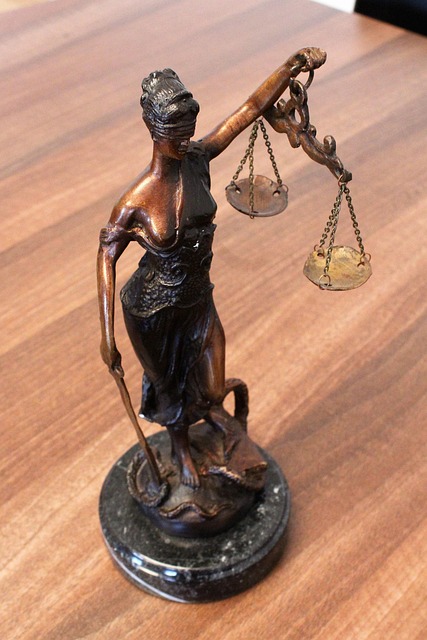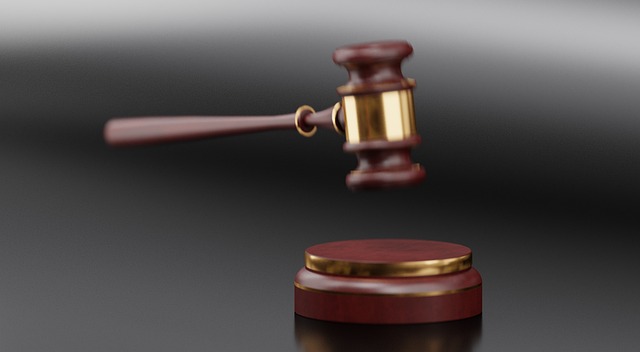In criminal law enforcement, understanding environmental compliance laws is vital for businesses to avoid significant penalties and legal issues. By proactively adhering to regulations on pollution control, waste management, and sustainable practices, companies can minimize their environmental impact and protect their financial stability. Regular audits, employee training, and staying updated with regulatory changes are key strategies. In case of breaches, a comprehensive plan facilitates swift corrective actions and negotiations with authorities, avoiding costly jury trials and reputational damage. Avoiding penalties in environmental compliance cases requires strategic guidance to navigate complex regulations effectively.
In today’s world, environmental compliance is not just a moral obligation but also a legal imperative. Criminal law enforcement plays a pivotal role in safeguarding our planet by holding individuals and businesses accountable for ecological transgressions. This article delves into the intricate web of environmental laws, exploring their significance and impact. We dissect the strategies to avoid penalties, highlight common pitfalls, and present compelling case studies, offering valuable insights for navigating the complexities of environmental compliance successfully.
- Understanding Environmental Compliance Laws
- The Role of Criminal Law Enforcement in Environmental Cases
- Avoiding Penalties: Strategies for Businesses and Individuals
- Common Mistakes Leading to Legal Consequences
- Case Studies: Successful Navigations Through Environmental Compliance Challenges
Understanding Environmental Compliance Laws

In the realm of criminal law enforcement, understanding environmental compliance laws is paramount for businesses to avoid hefty penalties and legal troubles. These regulations, designed to protect our natural resources and ecosystems, can be complex and far-reaching, covering areas such as pollution control, waste management, and sustainable practices. Businesses must navigate these legal landscapes to ensure they meet all standards and regulations to prevent facing charges that could jeopardize their operations and financial stability.
Avoiding penalties in environmental compliance cases often requires a proactive approach. This includes implementing robust internal policies, training employees on best practices, and staying updated with the latest regulatory changes. For instance, companies should establish clear protocols for handling hazardous materials, dispose of waste responsibly, and adopt eco-friendly technologies to minimize their environmental footprint. Should a breach occur, having a comprehensive plan in place can facilitate swift corrective actions and potential negotiations with authorities, aiming for the complete dismissal of all charges rather than facing costly jury trials and reputational damage.
The Role of Criminal Law Enforcement in Environmental Cases

Criminal law enforcement plays a crucial role in environmental cases, ensuring that businesses and individuals adhere to strict regulations aimed at protecting the environment. When companies violate these laws, facing potential fines and penalties is a real possibility. However, proactive compliance can help avoid these consequences. By understanding and adhering to environmental regulations, businesses can mitigate the risk of legal repercussions, including avoiding indictment and costly jury trials across the country.
Enforcers investigate complaints, conduct inspections, and impose sanctions on entities found guilty of environmental crimes. This process serves as a deterrent, encouraging responsible practices among industries. Effective enforcement is particularly important in cases involving pollution, waste management, and endangered species protection. By holding perpetrators accountable, criminal law helps promote sustainable behavior, ensuring the long-term health of our ecosystems, and ultimately, society as a whole.
Avoiding Penalties: Strategies for Businesses and Individuals

In environmental compliance cases, avoiding penalties is a strategic priority for businesses and individuals alike. Proactive measures can significantly mitigate potential fines and legal repercussions. One key strategy involves staying informed about evolving regulations, ensuring compliance with the latest standards set by relevant authorities. Regular audits and assessments of operational practices are essential to identify any gaps or non-conformities before they lead to official complaints. Companies should establish robust internal protocols and training programs to educate employees on environmental stewardship, fostering a culture of accountability.
For his clients, legal counsel plays a pivotal role in navigating complex regulatory landscapes. Skilled attorneys can offer tailored advice, helping businesses implement best practices to avoid penalties. This includes developing comprehensive environmental management systems, conducting risk assessments, and maintaining meticulous records. By staying ahead of potential issues and demonstrating due diligence, businesses can protect their reputations and financial health, even in the face of jury trials if necessary.
Common Mistakes Leading to Legal Consequences

In environmental compliance cases, common mistakes can lead to significant legal consequences and avoidable penalties. Many businesses and individuals mistakenly believe that their actions are exempt from regulations or fail to stay updated with changing environmental laws. This lack of awareness often results in non-compliance, which can be detrimental. For instance, improper waste disposal, failure to obtain necessary permits, and ignoring pollution control measures are frequent culprits.
Avoiding penalties in these cases requires a proactive approach to environmental law. Engaging the services of a competent general criminal defense lawyer who specializes in environmental compliance is crucial. These legal professionals can guide clients through intricate regulations, ensuring they stay on the right side of the law. Regular audits and training sessions for employees on environmental best practices are also effective strategies. Staying informed and proactive significantly reduces the risk of legal repercussions during jury trials, ultimately protecting interests and resources for his clients.
Case Studies: Successful Navigations Through Environmental Compliance Challenges

In the realm of criminal law enforcement, environmental compliance cases present unique challenges that demand strategic navigation to avoid penalties. Case studies illustrate successful defenses where professionals skillfully navigated complex regulations, ultimately achieving extraordinary results. By employing innovative strategies and leveraging expert witness testimony, lawyers have secured winning challenging defense verdicts in high-stakes trials.
These examples underscore the importance of meticulous planning and understanding of environmental laws. Organizations facing such charges can benefit from proactive measures to ensure compliance, thereby enhancing their defenses should they ever reach jury trials. Through careful assessment and strategic interventions, it’s possible to mitigate risks, avert penalties, and demonstrate a commitment to environmental stewardship.
In conclusion, understanding environmental compliance laws is paramount for businesses and individuals alike. By familiarizing themselves with these regulations, they can effectively navigate potential legal challenges and avoid hefty penalties. The role of criminal law enforcement in environmental cases underscores the gravity of non-compliance. However, proactive strategies, as highlighted in this article, offer a game-changer approach to ensuring adherence, thereby fostering a sustainable future. Remember that, by learning from common mistakes and successful case studies, we can collectively revolutionize environmental stewardship.






